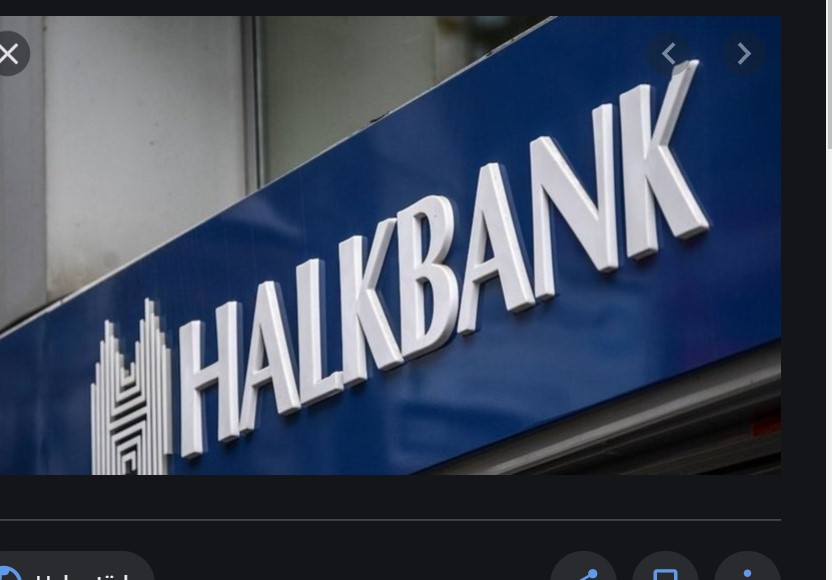Turkey’s state-owned Halkbank got a mixed reception at the US Supreme Court as the bank sought dismissal of criminal charges that it helped Iran evade economic sanctions.
Hearing arguments in Washington in a case with both economic and political ramifications, several justices questioned Halkbank’s assertion that federal courts lack power to consider criminal cases against foreign governments and the companies they own.
Justice Brett Kavanaugh said blocking the prosecution could usurp the power of the president to make national security decisions. He noted that the Halkbank charges were filed while Donald Trump was president and now have the support of President Joe Biden.
“This is at the highest levels of negotiations between the United States and Turkey. This case is apparently part of those discussions,” Kavanaugh said. “What expertise do we have to balance all those considerations?”
But Kavanaugh was also among several justices who suggested the New York-based 2nd US Circuit Court of Appeals might not have adequately considered one aspect of the bank’s argument for sovereign immunity before letting the case go forward.
The questioning raised the possibility of returning the case to the 2nd Circuit to revisit whether the prosecution is barred under “common law,” the judge-made set of legal rules that sometimes apply when no statute governs.
Erdogan Lobbying
The charges against Halkbank have been a major source of tension between the US and Turkey. The 2019 indictment came after years of public and private lobbying by Turkish President Recep Erdogan to get US investigations dropped. The government’s Turkish Wealth Fund owns a majority of Halkbank’s shares.
The Turkish lira reversed from losses to gains and was trading 0.1% higher at 18.7727 per the US dollar at 8:55 p.m. in Istanbul, after the Supreme Court finished arguments in the case.
Should it go forward, the case could force Halkbank into a settlement costing $1 billion to $2 billion, according to Bloomberg Intelligence analyst Elliot Stein.
Halkbank’s lawyer, Lisa Blatt, said the criminal prosecution of another country was unprecedented.
“The world has been around for like 7,000 years, and no country has ever tried another country,” she argued.
Blatt said Congress never authorized federal courts to hear criminal cases against foreign governments or the companies they own. She also contended that the 1976 US Foreign Sovereign Immunities Act provides an additional shield.
Both of those lines of arguments drew pushback. Justice Ketanji Brown Jackson said the FSIA was designed with civil lawsuits against foreign countries in mind.
“I don’t see anything in the statute that suggests that Congress was focused on or was thinking about immunity for criminal prosecution,” Jackson said.
States and Cities
But other justices said they were worried about the implications of saying the FSIA doesn’t apply at all in the criminal context. Several asked whether that would mean states and cities could prosecute foreign countries without considering such factors as the possibility of retaliation.
“However carefully the United States might consider it before initiating such a prosecution, it may or may not be possible to control what states and municipalities do,” Justice Amy Coney Barrett said.
The 2nd Circuit concluded that, even if the FSIA applies, the alleged wrongdoing falls within an exception for commercial activity. Justice Department lawyer Eric Feigin defended that reasoning Tuesday, saying it squared with decades of practice.
“I’m not going to claim that we’ve been doing this since for 7,000 years or claim that we’ve been doing this since the founding because we haven’t,” Feigin argued. “But that’s because of a rise of government-owned corporations concealing some very serious crimes.”
Prosecutors allege that Halkbank helped free up $20 billion of restricted Iranian funds and helped launder at least $1 billion through the US financial system.
The US previously charged several company officials, including Mehmet Hakan Atilla, who was convicted in 2018. The man at the center of the allegations, Turkish-Iranian gold trader Reza Zarrab, pleaded guilty and became the star witness in the case against Atilla.
In one alleged scheme, Halkbank transferred Iranian oil and gas proceeds to Zarrab’s front companies that converted the funds to gold, which was later converted into cash that Iran could use without restrictions.
Bloomberg
